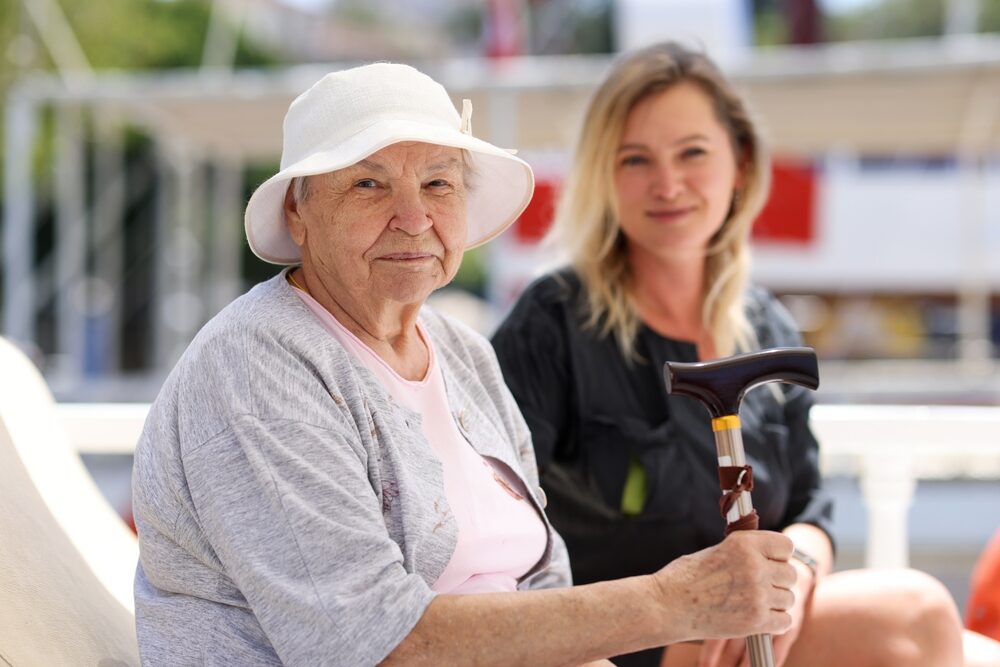Legal guardians get paid in Virginia for the services they provide to incapacitated adults. The commissioner of accounts with your local circuit court oversees guardianships. This department conducts audits of guardian’s accounts and allows them to access reasonable funds for the support they provide.
You can consult a Virginia guardianship and conservatorship lawyer for help applying for guardianship of an incapacitated loved one. An attorney will also help you petition the court for funds to assist with their care.
How do Guardians Get Paid in Virginia?
A Virginia trusts and estates lawyer will help you through the process of applying for guardianship of an incapacitated adult and getting paid for the care you provide. Under Virginia Code § 64.2-1208, guardians are entitled to compensation for the services and care they provide to incapacitated adults.
Potential funds typically come from your appointee’s personal finances. However, this compensation is not automatic and must adhere to the court guidelines.
You Will Need Court Approval of Payments
Once you’ve been appointed as a Virginia guardian, you will need court approval to receive payment. The funds used to compensate guardians typically come from the incapacitated individual’s estate.
A lawyer will assist you with filing the necessary petitions to ensure you are compensated fairly for your time, effort, and expenses. Courts generally approve payments that are deemed reasonable and in proportion to the services provided.
Schedule your free meeting with our team today to see if our Lawyers can help you.
Fiduciary Responsibilities of a Guardian in Virginia
As a guardian, you will have fiduciary duties to act in the best interests of the incapacitated individual. You must carefully manage their finances, make decisions that benefit their well-being, and maintain detailed records of all expenses and services provided.
These records are essential not only for transparency but also for justifying your compensation during court reviews.
Oversight by the Commissioner of Accounts
In Virginia, the Commissioner of Accounts, an official appointed by the local circuit court, oversees guardianships. This office conducts regular audits of the guardian’s financial accounts and ensures all expenditures, including compensation, are reasonable and properly documented.
This oversight helps protect the interests of the incapacitated individual and ensures guardians are fulfilling their responsibilities appropriately.
Guardians Get Paid Reasonable Compensation in Virginia
The amount a guardian is paid depends on several factors, including the complexity of the care they provide, the time invested, and the financial resources of the individual under guardianship.
Compensation typically covers tasks such as:
- Managing medical care
- Arranging for daily needs
- Handling financial matters
- Making decisions on behalf of the incapacitated adult
An attorney will help you present a clear case to the court for what constitutes reasonable compensation in your situation.
Click to contact our family lawyers today
How Attorneys Help Guardians Get Paid in Virginia
Applying for and managing legal guardianship can be complex, especially when it comes to ensuring you are compensated fairly. A Virginia Beach guardianship and conservatorship attorney will guide you through the legal requirements and help you petition the court for payment.
They will also ensure you understand your fiduciary duties and provide assistance with maintaining the necessary records to facilitate the Commissioner of Accounts’ smooth review process.
By working with an experienced lawyer, you can focus on providing the best care for your loved one while ensuring that your efforts are recognized and compensated in accordance with Virginia law.
Schedule a call with one of our client services coordinators today
Does a Guardian Need a Conservator’s Consent to Get Paid in Virginia?
In Virginia, a guardian does not necessarily need a conservator’s consent to get paid, but the court’s approval is required. Compensation for guardians typically comes from the incapacitated person’s estate, which the conservator manages. While the conservator oversees financial matters, the guardian’s payment must first be approved by the court to ensure it is reasonable and appropriate.
If the guardian and conservator are different individuals, the conservator is responsible for disbursing the funds once the court authorizes the payment.
However, disputes can arise if the conservator does not agree with the guardian’s request for compensation. In such cases, the court will make the final decision to protect the interests of the incapacitated person.
An experienced attorney will explain the difference between a conservator and a guardian. They also help guardians work with conservators and petition the court for fair compensation.
Melone Hatley, P.C. Helps Guardians Get Paid in Virginia
Guardians play a critical role in ensuring their loved ones’ health, safety, and overall well-being, often dedicating significant time and effort to provide the necessary care.
Fortunately, Virginia law allows guardians to be reasonably compensated for their work. Whether you are seeking guardianship, conservatorship, or assistance with requesting compensation, we will help.
Melone Hatley, P.C. will guide you through every step of the process—from filing petitions to maintaining compliance with court requirements—while ensuring you fulfill your fiduciary duties and receive fair payment for your services.
Call us today for a free consultation with our Client Services Coordinator.
Schedule a call with one of our client services coordinators today.



